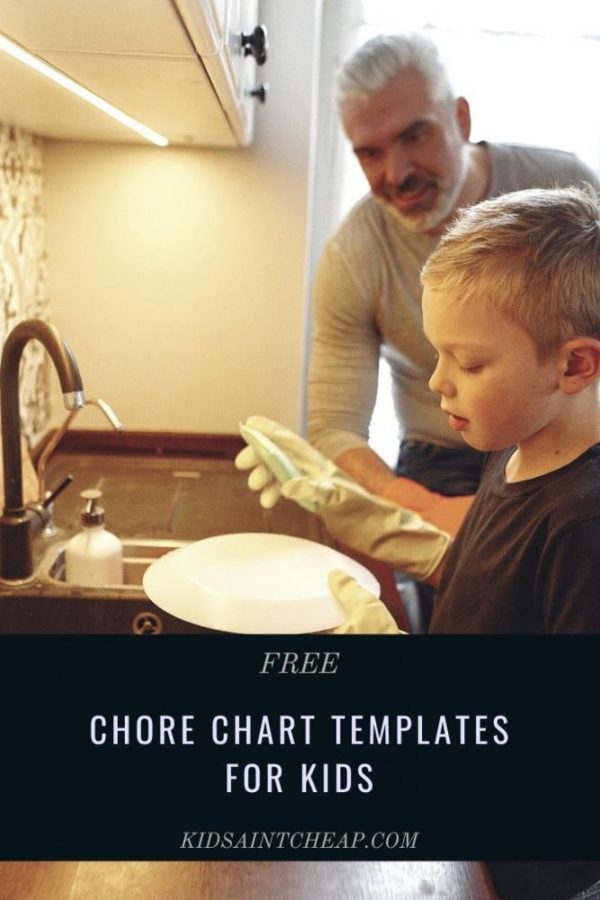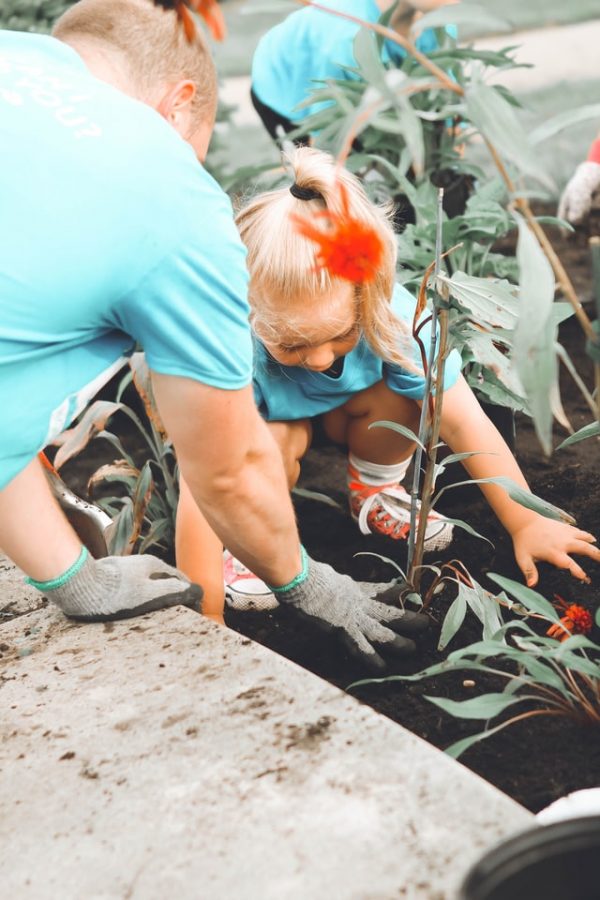My kids started helping with chores when they were about 18 months to 2 years of age. My oldest got his own little broom that would recite, “sweeping, sweeping” as he swept. He loved that broom, and he loved helping out. Most toddlers are eager to do what the people around them are doing. If you have a toddler and want to start working with them on chores or you want a more organized chore routine for your older kids, consider using one of these free chore chart templates for kids.
Why Assign Kids Chores?
Some parents don’t want their kids to do chores. They argue that kids should just be kids. However, there are many valid reasons why you should assign your children chores:
They Learn Valuable Life Skills
When I went to college, I couldn’t believe how many kids didn’t even know how to do their own laundry. My son started doing his own laundry at 12, and my daughter started at 11. The larger variety of chores you have your kids do, the better they will be able to successfully live on their own.
They Learn to Contribute
There are many things that need to be done to run a household successfully. If you don’t expect your kids to contribute, they can grow accustomed to the idea of others doing things for them, which can lead to a sense of entitlement. The family is the first place kids learn what it means to be part of a group and to help run that group. This, too, will be a valuable lesson for their adult lives.
Should You Pay Kids for Chores?
This can be another devisive issue. Some families don’t pay their kids money for chores because they want them to realize that they are part of a family and family members help one another.
Others, like my family, pay their kids for chores because they want kids to firmly make the connection between work and income. You work, and you earn money. You don’t work, and you’re broke.
Still others don’t pay cash but instead let their kids earn privileges like watching a show, or playing a video game, or staying up late based on the chores they do.
The choice is up to you and what your family decides will work best.
Free Chore Chart Template for Kids
There is no need for you to create your own chore chart template for kids when there are so many out there! Here are a few of our favorites:
Healthy, Happy, Impactful has a chore chart template that gives blank lines to list up to eight chores beside squares for days of the week. Just check off each day that the chore is completed. There is also a box at the bottom for notes.
Plan for Awesome has a chore chart template for toddlers. This one is unique in that rather than words, there are pictures so your littlest helpers can understand. You can also use the pictures and words for the preschool and early elementary set.
Make any one of these chore charts last longer by laminating them or placing them in a plastic sleeve so you can use them week after week.
Final Thoughts
There’s no time like the present to start having your kids help with chores. These free chore templates can help motivate them and help them find pride in their accomplishments.
Read More
Teach Your Child About Money: Free Savings Chart for Kids
Parenting Win: Teaching Money Skills to Your Kids
Free Apps that Help Kids Manage Their Pocket Money
Melissa is a writer and virtual assistant. She earned her Master’s from Southern Illinois University, and her Bachelor’s in English from the University of Michigan. When she’s not working, you can find her homeschooling her kids, reading a good book, or cooking. She resides in Arizona where she dislikes the summer heat but loves the natural beauty of the area.


